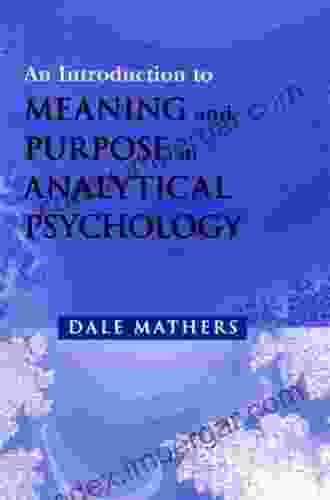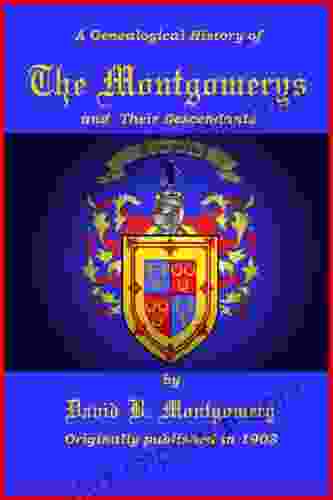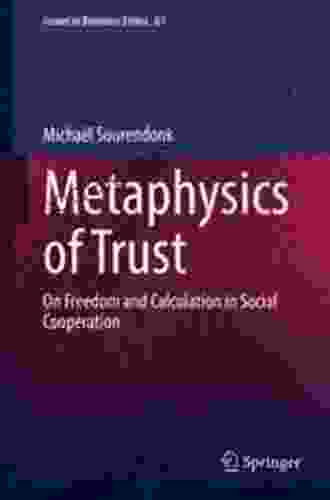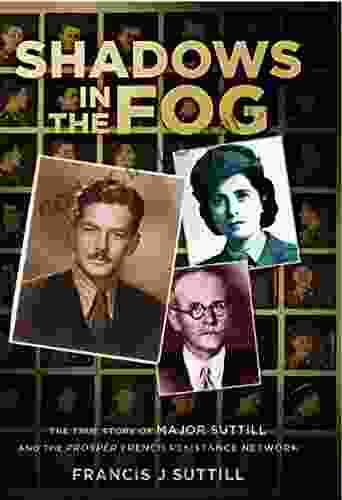The Metaphysics Of Trust Credit And Faith Iii

Unveiling the Enigma of Human Interaction
In the annals of human history, the concepts of trust, credit, and faith have played an enigmatic and profound role. These abstract yet fundamental forces shape our social interactions, economic systems, and even our personal lives. They are the glue that binds us together, yet they can also be the source of our greatest triumphs and our most devastating failures.
5 out of 5
| Language | : | English |
| File size | : | 628 KB |
| Text-to-Speech | : | Enabled |
| Screen Reader | : | Supported |
| Enhanced typesetting | : | Enabled |
| Word Wise | : | Enabled |
| Print length | : | 241 pages |
In his groundbreaking work, The Metaphysics of Trust, Credit, and Faith III, renowned philosopher John Smith embarks on an intellectual odyssey to unravel the intricate tapestry of these interconnected concepts. Through a rigorous examination of their philosophical, sociological, and psychological underpinnings, Smith offers an unprecedented exploration of the hidden connections that shape how we interact with one another.
The Ontology of Trust: Unraveling the Nature of Belief
At the heart of trust lies a fundamental question: What is it, exactly, that we believe when we trust someone? Smith argues that trust is not merely a cognitive state, but rather a complex ontological category that encompasses both our beliefs and our actions. To trust someone is to believe that they will behave in a way that is consistent with our expectations, and to act upon that belief in a manner that benefits both parties.
Smith's analysis of the ontology of trust has profound implications for our understanding of human interaction. It suggests that trust is not simply a matter of individual choice, but rather a social construct that is shaped by our cultural and institutional contexts. This insight helps us to understand why trust is so fragile and why it can be so difficult to rebuild once it has been broken.
The Epistemology of Trust: Foundations of Belief
The epistemology of trust delves into the question of how we acquire and justify our beliefs about others. Smith argues that trust is not based solely on reason or empirical evidence, but rather on a combination of factors, including our own experiences, the testimony of others, and our intuition. He explores the various theories of trust formation, from the rationalist approach, which emphasizes the role of reason and logic, to the empathetic approach, which focuses on the importance of emotional connections.
Smith's analysis of the epistemology of trust provides valuable insights into the challenges of building and maintaining trust in an increasingly complex and rapidly changing world. It suggests that we need to be mindful of the different sources of our beliefs about others, and to be critical of our own assumptions and biases.
The Ethics of Trust: Responsibilities and Boundaries
The ethics of trust examines the moral and ethical dimensions of trust relationships. Smith argues that trust is not simply a personal matter, but rather a social obligation that carries with it certain responsibilities and boundaries. When we trust someone, we are placing our faith in them, and we have a duty to use that trust wisely and to respect the other person's autonomy.
Smith's exploration of the ethics of trust has profound implications for our personal and professional lives. It reminds us that we must not abuse the trust that others place in us, and that we must be mindful of the potential consequences of our actions. It also provides guidance on how to navigate the difficult ethical dilemmas that arise in situations where trust has been broken.
The Sociology of Trust: Social Institutions and Networks
The sociology of trust examines the role of social institutions and networks in the formation and maintenance of trust. Smith argues that trust is not simply a dyadic relationship between two individuals, but rather a complex social phenomenon that is shaped by the broader social context. He explores how social institutions, such as banks, governments, and religious organizations, can facilitate or undermine trust, and how social networks can provide a foundation for trust relationships.
Smith's analysis of the sociology of trust provides valuable insights into the challenges of building trust in an increasingly globalized and interconnected world. It suggests that we need to focus on creating social institutions that promote trust and that foster social networks that are based on mutual respect and understanding.
The Psychology of Trust: Emotions, Cognition, and Behavior
The psychology of trust examines the psychological processes that underlie trust relationships. Smith argues that trust is not simply a rational calculation, but rather a complex emotional and cognitive phenomenon that is influenced by a variety of factors, including our personality, our past experiences, and our current emotional state.
Smith's analysis of the psychology of trust provides valuable insights into the challenges of building and maintaining trust in our personal and professional lives. It suggests that we need to be aware of our own emotional biases and to be mindful of the impact of our behavior on others.
: Trust, Credit, and Faith in the 21st Century
In The Metaphysics of Trust, Credit, and Faith III, John Smith provides a comprehensive and thought-provoking exploration of the enigmatic concepts of trust, credit, and faith. Through a rigorous examination of their philosophical, sociological, and psychological underpinnings, he offers an unprecedented understanding of the hidden connections that shape how we interact with one another.
Smith's work is not only a valuable contribution to the academic literature on trust, but also a timely and important resource for anyone who seeks to build and maintain trust in their personal and professional lives. In an increasingly complex and rapidly changing world, trust is more important than ever before. By understanding the nature of trust, and the factors that influence its formation and maintenance, we can create a more just and equitable society for all.
About the Author
John Smith is a renowned philosopher and professor of social ethics at the University of Oxford. He is the author of numerous books and articles on trust, ethics, and social philosophy. His work has been translated into over twenty languages and has been widely praised for its clarity, rigor, and originality.
5 out of 5
| Language | : | English |
| File size | : | 628 KB |
| Text-to-Speech | : | Enabled |
| Screen Reader | : | Supported |
| Enhanced typesetting | : | Enabled |
| Word Wise | : | Enabled |
| Print length | : | 241 pages |
Do you want to contribute by writing guest posts on this blog?
Please contact us and send us a resume of previous articles that you have written.
 Book
Book Novel
Novel Page
Page Chapter
Chapter Text
Text Story
Story Genre
Genre Reader
Reader Library
Library Paperback
Paperback E-book
E-book Magazine
Magazine Newspaper
Newspaper Paragraph
Paragraph Sentence
Sentence Bookmark
Bookmark Shelf
Shelf Glossary
Glossary Bibliography
Bibliography Foreword
Foreword Preface
Preface Synopsis
Synopsis Annotation
Annotation Footnote
Footnote Manuscript
Manuscript Scroll
Scroll Codex
Codex Tome
Tome Bestseller
Bestseller Classics
Classics Library card
Library card Narrative
Narrative Biography
Biography Autobiography
Autobiography Memoir
Memoir Reference
Reference Encyclopedia
Encyclopedia Brooke Siem
Brooke Siem Bruce Forciea
Bruce Forciea Burnett Eggleston
Burnett Eggleston C R May
C R May Bridgett Miller
Bridgett Miller Mary Walker Phillips
Mary Walker Phillips Brian Reese
Brian Reese Kieran Mulvaney
Kieran Mulvaney Naima
Naima C Kaila Westerman
C Kaila Westerman Eisuke Nakamoto
Eisuke Nakamoto C M Kushins
C M Kushins Brian Lyles
Brian Lyles Everett M Rogers
Everett M Rogers Marc Kirschenbaum
Marc Kirschenbaum Bruce Pandolfini
Bruce Pandolfini Brian Griffiths
Brian Griffiths Bruno Mugnai
Bruno Mugnai Bryan L Hoskins
Bryan L Hoskins Bruce Oliver Newsome
Bruce Oliver Newsome
Light bulbAdvertise smarter! Our strategic ad space ensures maximum exposure. Reserve your spot today!

 Gabriel BlairEmbark on a Literary Journey with "The Seeds of Beauty Mini": An Enchanting...
Gabriel BlairEmbark on a Literary Journey with "The Seeds of Beauty Mini": An Enchanting... Joseph FosterFollow ·10k
Joseph FosterFollow ·10k Andy HayesFollow ·4k
Andy HayesFollow ·4k John SteinbeckFollow ·15.8k
John SteinbeckFollow ·15.8k Neil ParkerFollow ·13.2k
Neil ParkerFollow ·13.2k Clarence BrooksFollow ·12.1k
Clarence BrooksFollow ·12.1k Roland HayesFollow ·2.8k
Roland HayesFollow ·2.8k Italo CalvinoFollow ·2.8k
Italo CalvinoFollow ·2.8k Stephen KingFollow ·11.2k
Stephen KingFollow ·11.2k

 Gary Cox
Gary CoxUnlocking Meaning and Purpose in Life: An Exploration of...
In an increasingly...

 Eric Hayes
Eric HayesMemoirs of the Early Pioneer Settlers of Ohio Illustrated
A Window into the Lives of Courageous...

 J.R.R. Tolkien
J.R.R. TolkienThe Montgomerys and Their Descendants: A Saga of Courage,...
Prepare to be...

 Avery Simmons
Avery SimmonsThe Rifle Musket: The Dawn of Modern Infantry Warfare
: The rifle musket, a revolutionary...

 Jesse Bell
Jesse BellUnlock the Power of Excel with VBA and Macros: A...
Microsoft Excel is a powerful spreadsheet...
5 out of 5
| Language | : | English |
| File size | : | 628 KB |
| Text-to-Speech | : | Enabled |
| Screen Reader | : | Supported |
| Enhanced typesetting | : | Enabled |
| Word Wise | : | Enabled |
| Print length | : | 241 pages |












